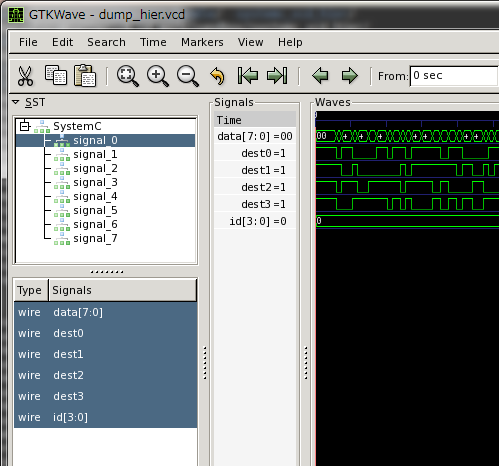Munin, which is a software to monitor the servers requires less effort to setup than
MRTG.
I setup Munin server on gentoo box and munin-node on centos boxes.
Munin server collects status from munin-nodes and generates charts.
Setup Munin server on gentoo
Article in gentoo wiki is helpful.
Before installing munin, it is better to serup httpd like apache, lighttpd.
If you have already installed httpd, simple emerge it, but you cannot use -minimal flag.
# emerge -v munin
# emerge --config net-analyzer/munin
If you also want to monitor this box, it should also be munin-node.
# rc-update add munin-node default
# /etc/init.d/munin-node
Then edit the /etc/munin/munin.conf and add following entry if not exists.
[yourserver.example.com]
address 127.0.0.1
use_node_name yes
emerge --config commands installs crontab, so you will find newly generated charts within 5 minutes at /var/www/localhost/htdocs/munin/.
Setup Munin-node on centos
Enable EPEL
Because munin is not hosted in the default repository, you have to enable EPEL (
).
On CentOS 5.x x86_64
# rpm -ivh http://ftp-srv2.kddilabs.jp/Linux/distributions/fedora/epel/5/x86_64/epel-release-5-4.noarch.rpm
On CentOS 6.x x86_64
# rpn -ivh http://ftp-srv2.kddilabs.jp/Linux/distributions/fedora/epel/6/x86_64/epel-release-6-5.noarch.rpm
Then edit/etc/yum.repos.d/epel-testing.repo and set enable of [epel-testing].
enabled=1
Install munin-node
Just yum it.
# yum install munin-node
Edit /etc/munin/munin-node.conf and add allow entry for Munin server. Note that the IP address must be described as a regular expression.
allow ^192\.168\.0\.\d+$
Then boot munin-node and make it executed automatically.
# /etc/init.d/munin-node start
# chkconfig --add munin-node
# chkconfig munin-node on
Add munin-node to be monitored
Edit /etc/munin/munin.conf on gentoo box and add an entry of centos box.
[centos.example.com]
address 192.168.0.2
use_node_name yes
Now you can check the status at http://gentoobox.example.com/munin/.
